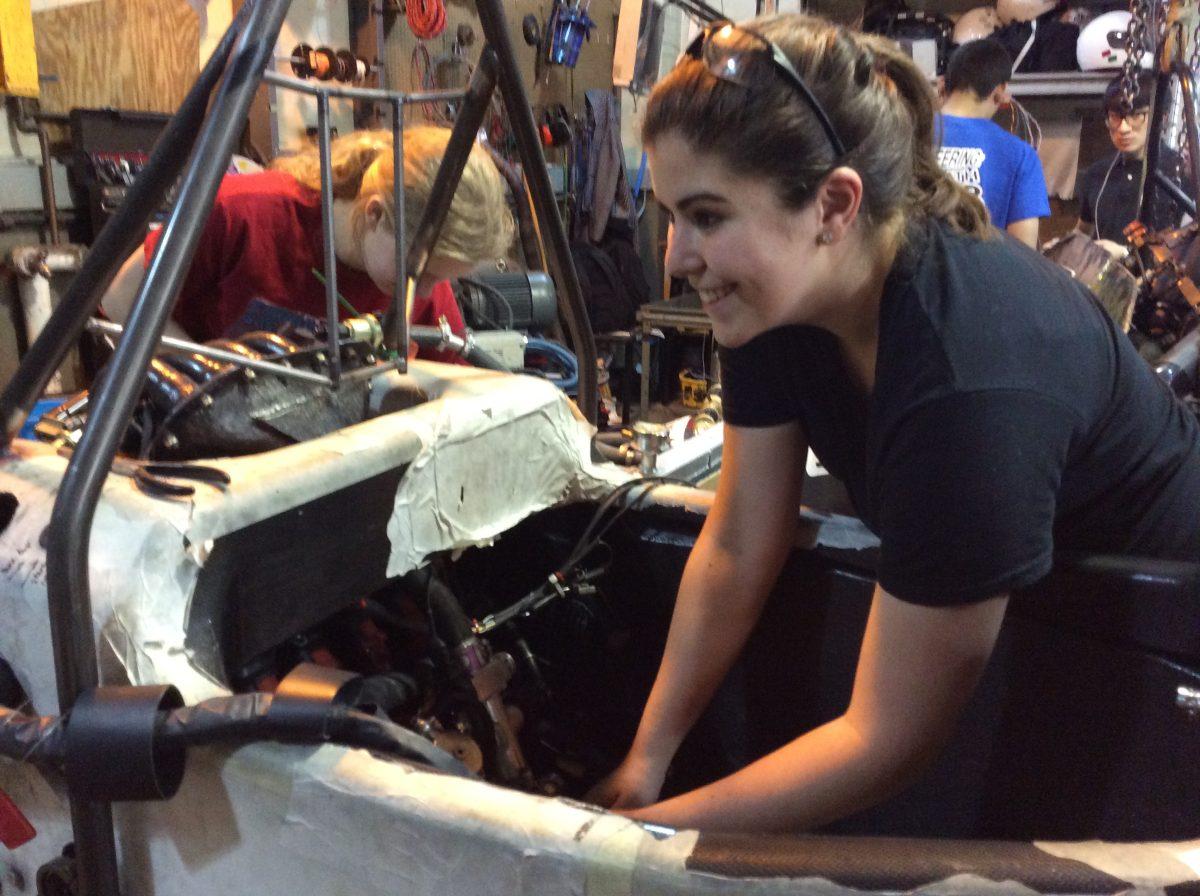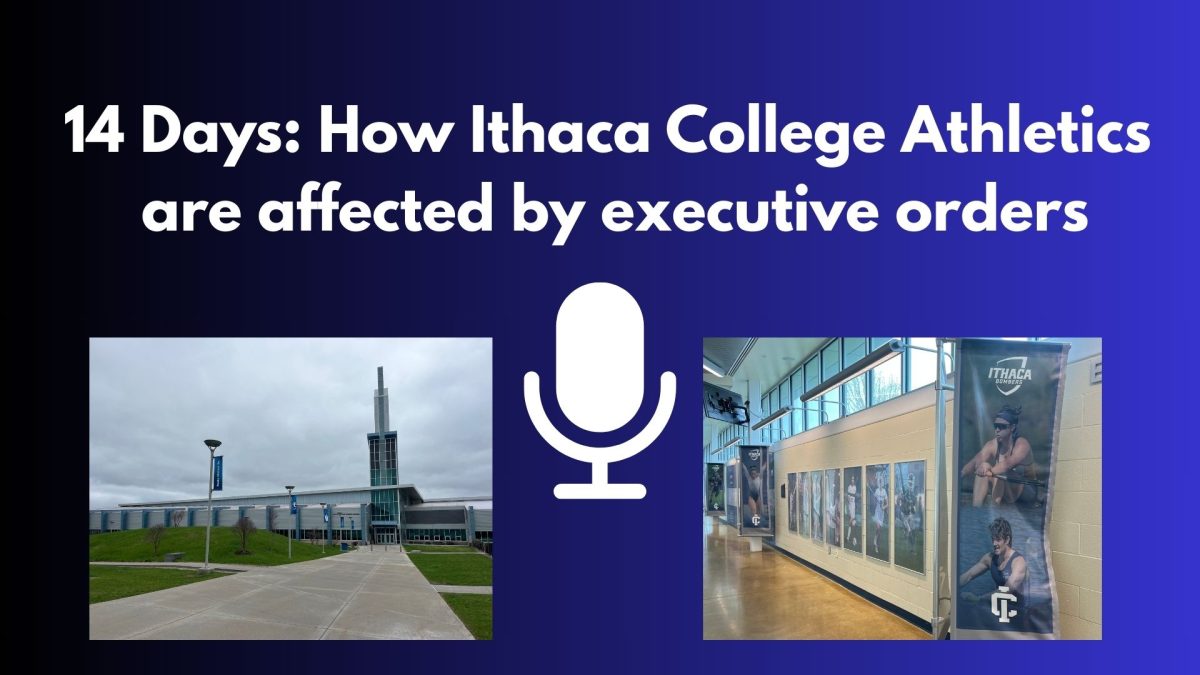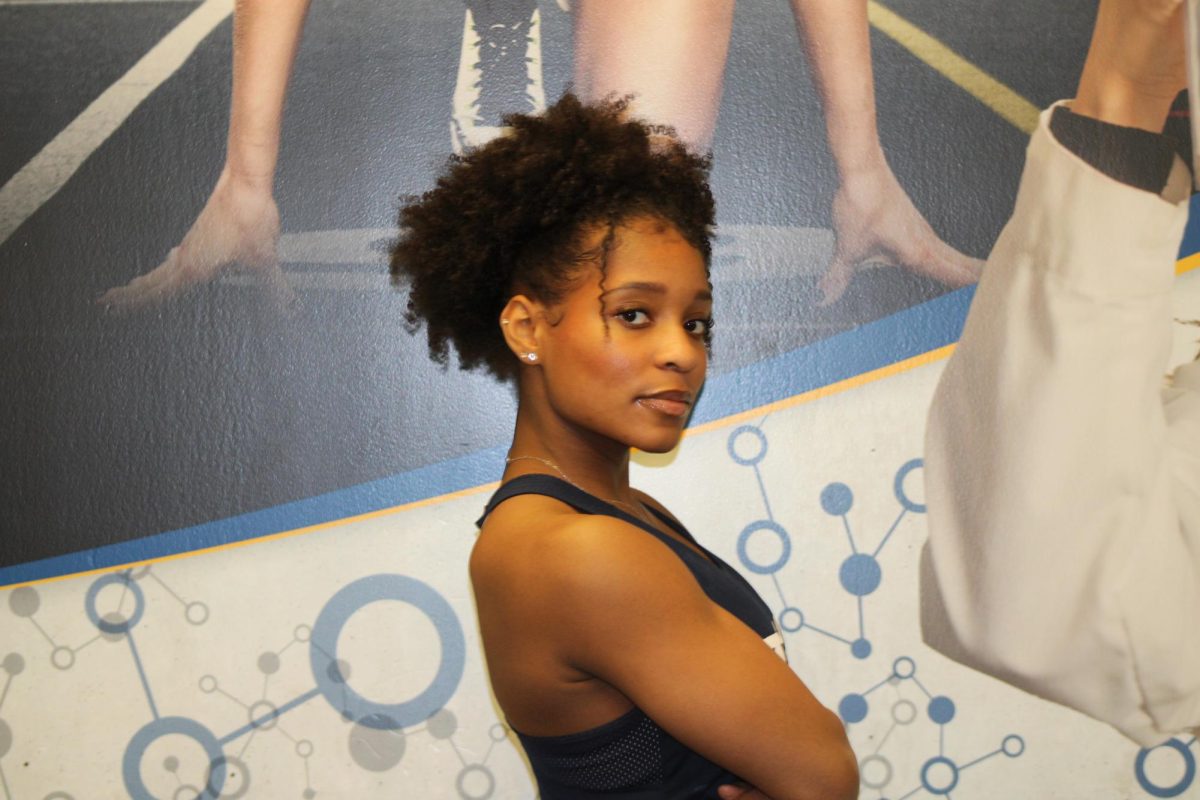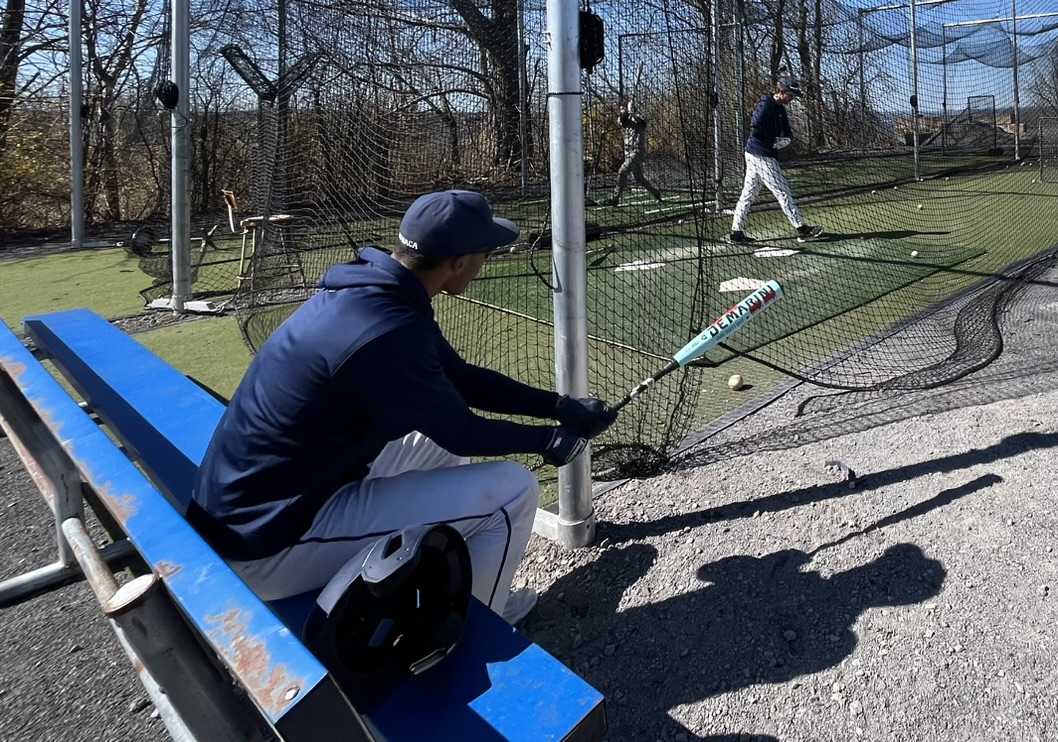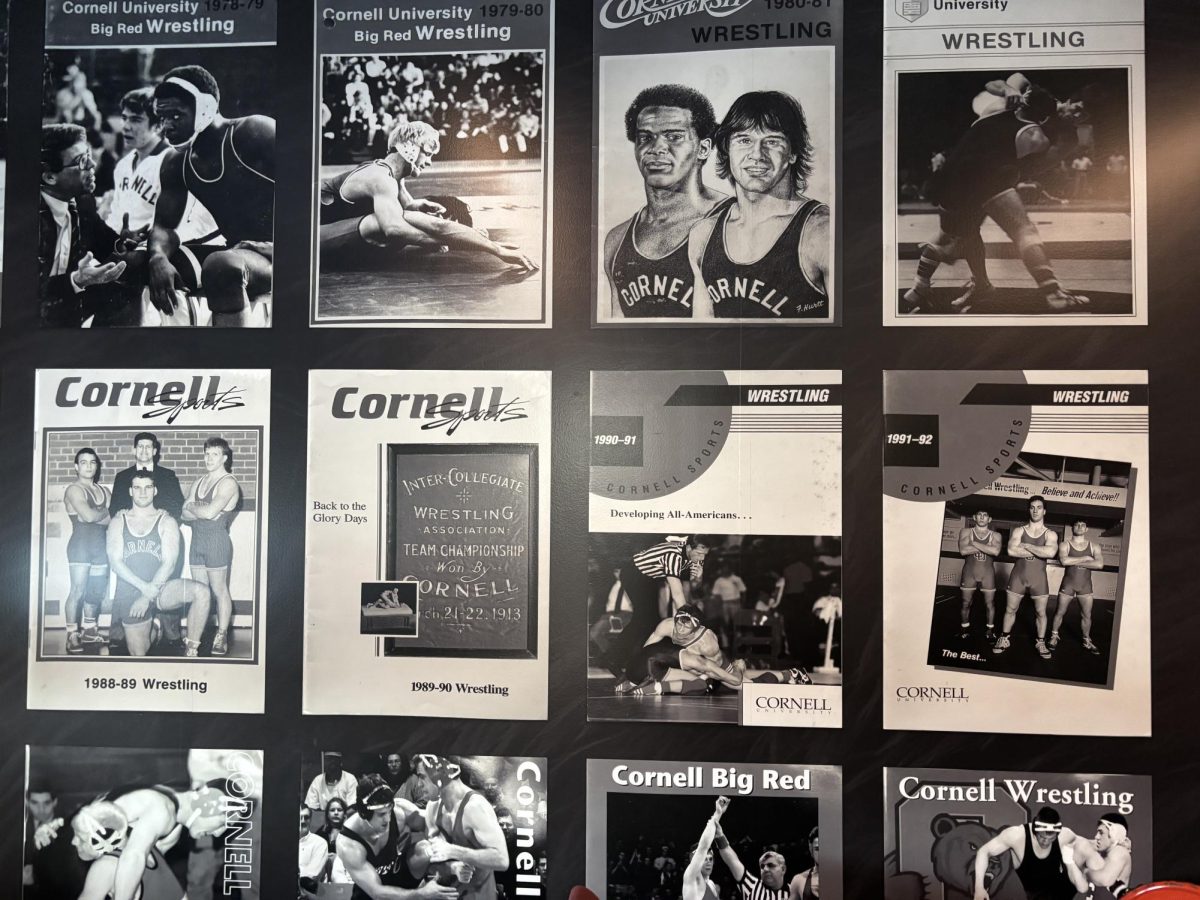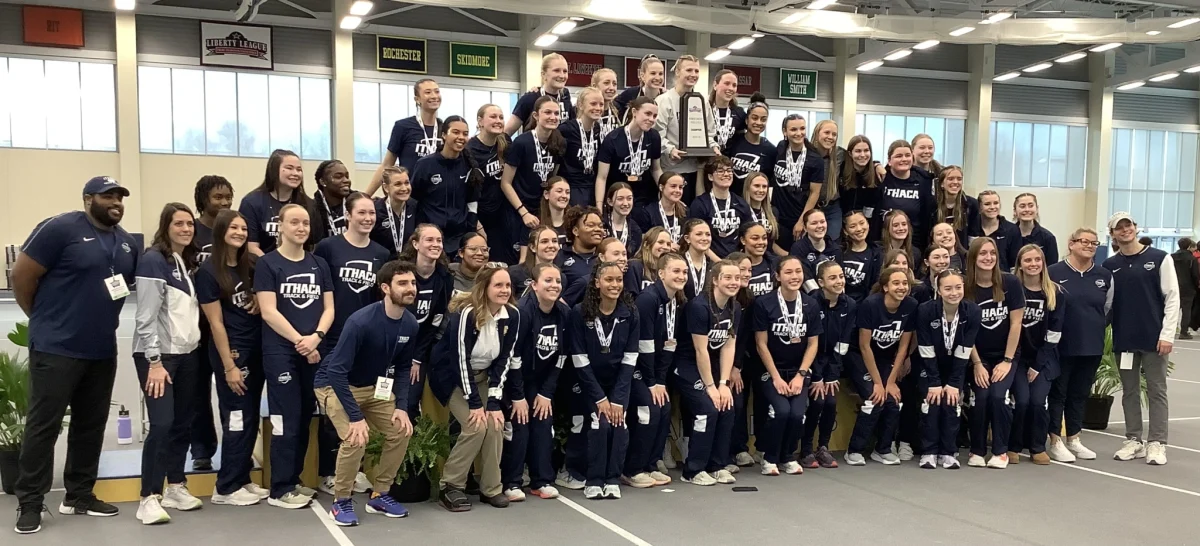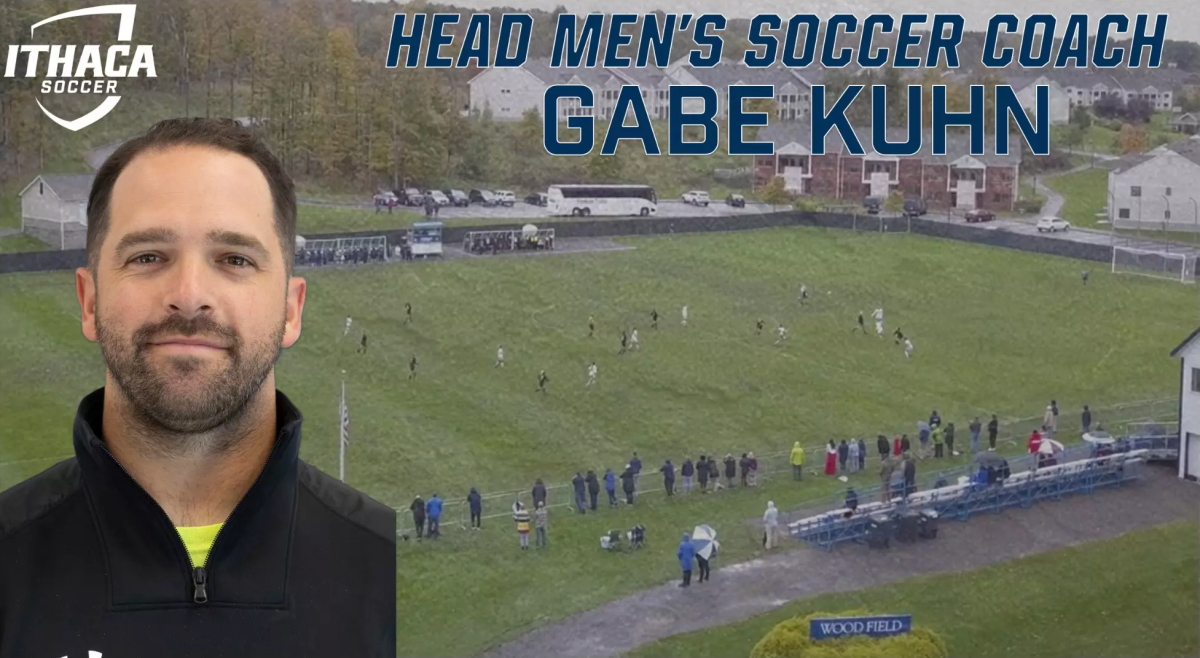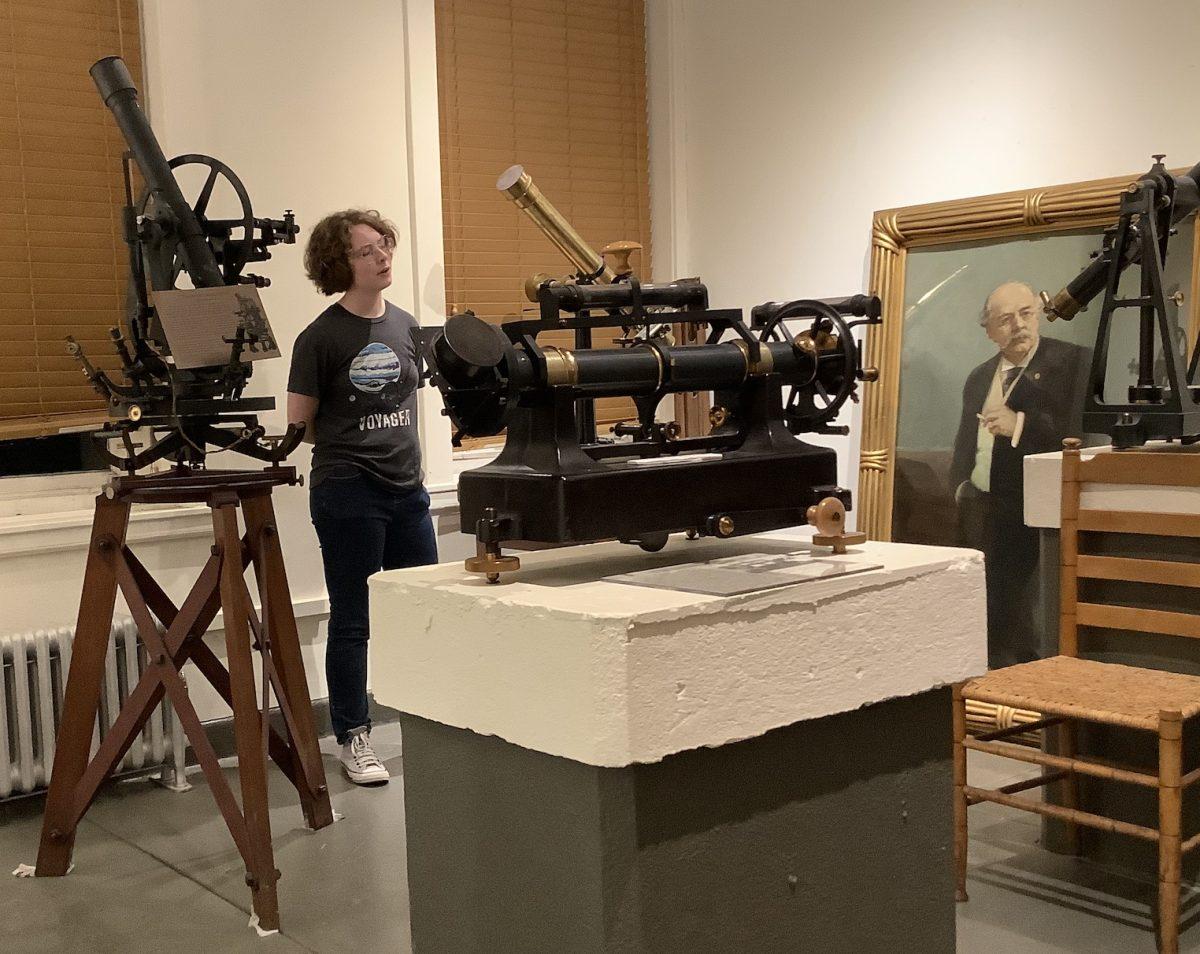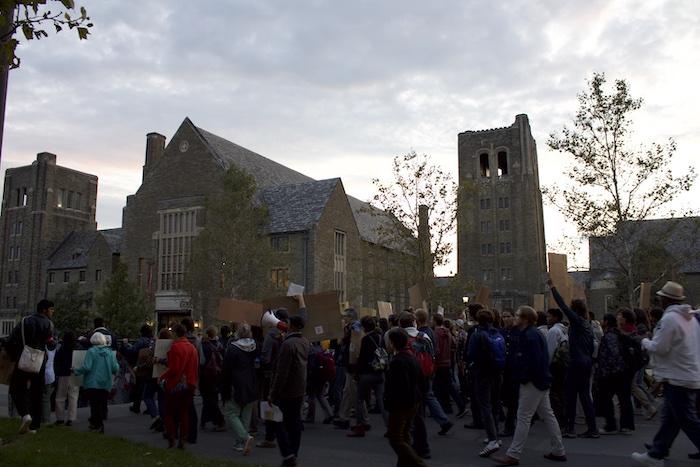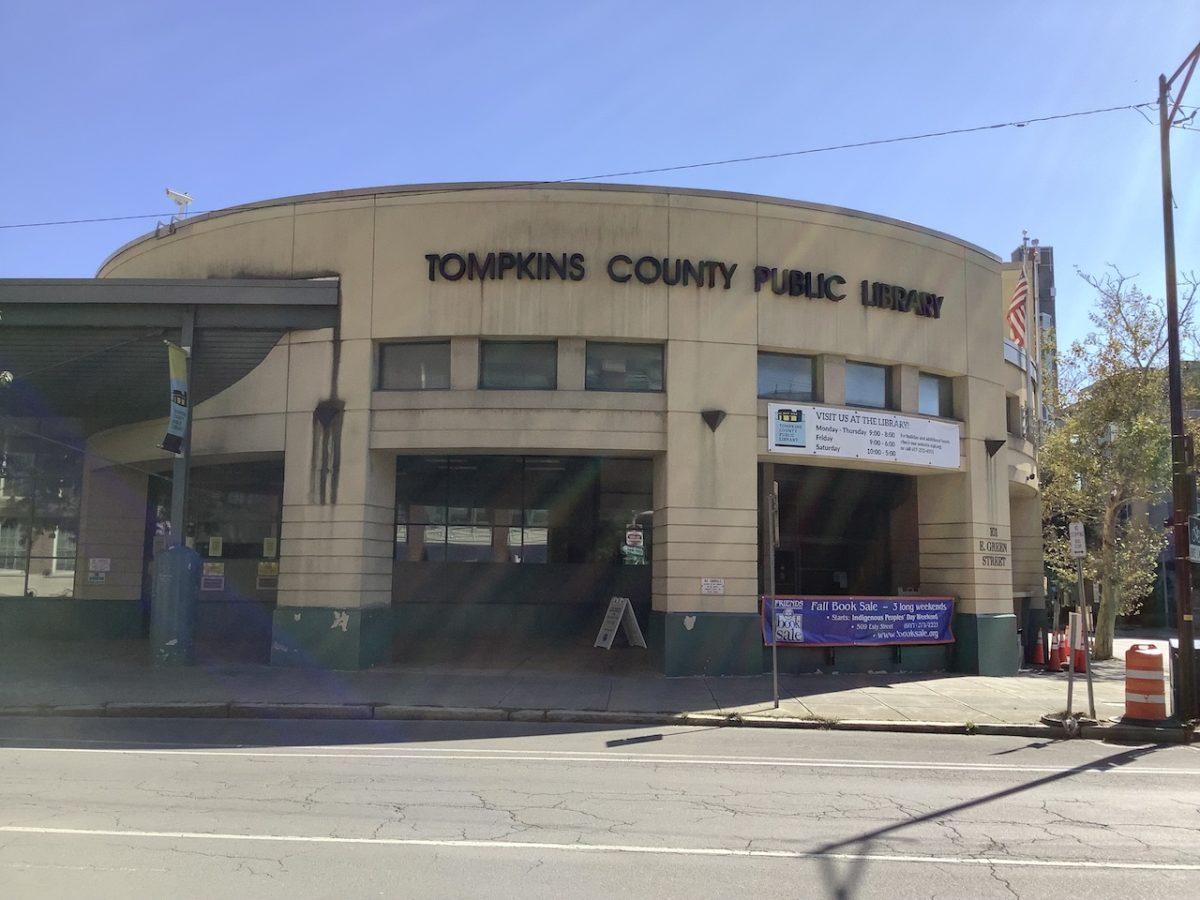Nina Buchakjian cuts a hole in the car’s monocoque, making room to install the steering rack, which is covered in an anti-seizing goop that stains her hands gray. She must precisely align the steering column and cut the remaining elements of her formula one racecar down to size.
The car must be finished in time for the Formula SAE series held in mid-May at the Michigan International Speedway. Buchakjian, a senior mechanical engineering student, and roughly 60 of her peers—all Cornell students—have been working nonstop to build a vehicle that will race cars built by students in universities as far away as South Korea and Austria.
“I really think we’re going to have a great car,” Buchakjian said.
Cornell Racing is a University-supported student project team that has been crowned world champion at the SAE Michigan collegiate auto racing competition nine times. The growth of collegiate racing is paralleled by an increase in the popularity of auto racing at the professional level. A 2014 Harris Poll, which monitors public opinion in the United States, dubbed racing more popular than the NHL and the NBA.
[topswf swf=’https://www.ithacaweek-ic.com/wp-content/uploads/2015/04/Sports-Flash-Final.swf’ width=’550′ height=’400′ quality=’best’ wmode=’transparent’ scale=’default’ flashvars=” allowfullscreen=’false’]
“We’ve been steadily growing ticket sales over the last three or four years,” Watkins Glen International President Michael Printup said.
The racetrack at Watkins Glen International renewed its partnership with Buchakjian’s team on March 24, in a deal that allows Cornell Racing to practice driving on the organization’s road course, which is widely regarded as one of the best in North America.
“Racing at the student level is becoming bigger,” Sarah Behringer, who heads Cornell Racing’s electrical sub team said. “Students are really excited to get involved in projects like this, and racing is a really exciting project.”
Despite losing a large sponsorship two years ago and facing cuts in University funding, Cornell Racing has benefited from the growth of auto racing’s fan base, earning $25,000 through a crowd funding campaign in 2015. The money will help improve the speed of the team’s car.
“That is going to allow me to purchase a new engine by hopefully mid-to-end of summer and begin testing its performance,” student Jonathan de la Fuente, who works on increasing fuel economy, said.
An engine failure knocked Cornell out of a top ten finish in Michigan last year, but Buchakjian said she is confident in the vehicle this year and even plans to take it to a Canadian competition in June.
The support of Cornell Racing is mirrored by support for professional racing, specifically in New York. In 2014, Governor Andrew Cuomo and the state legislature declared March 17-23 to be the official “Motorsports Week” in New York State.
“I think we’re especially lucky in New York because we’re so well supported by so many racetracks,” Printup said.
Brand loyalty, as well as corporate and media promotion of auto racing has contributed to racing’s growth across the state in recent years, Printup said. Watkins Glen International, he said, will capitalize on that growth by offering additional attractions for fans at the site, including concerts, which will accentuate the auto races themselves.
“The cars are getting better, the competition is getting better and the tracks are getting faster,” Printup said. “We’re better off today as a sport.”

